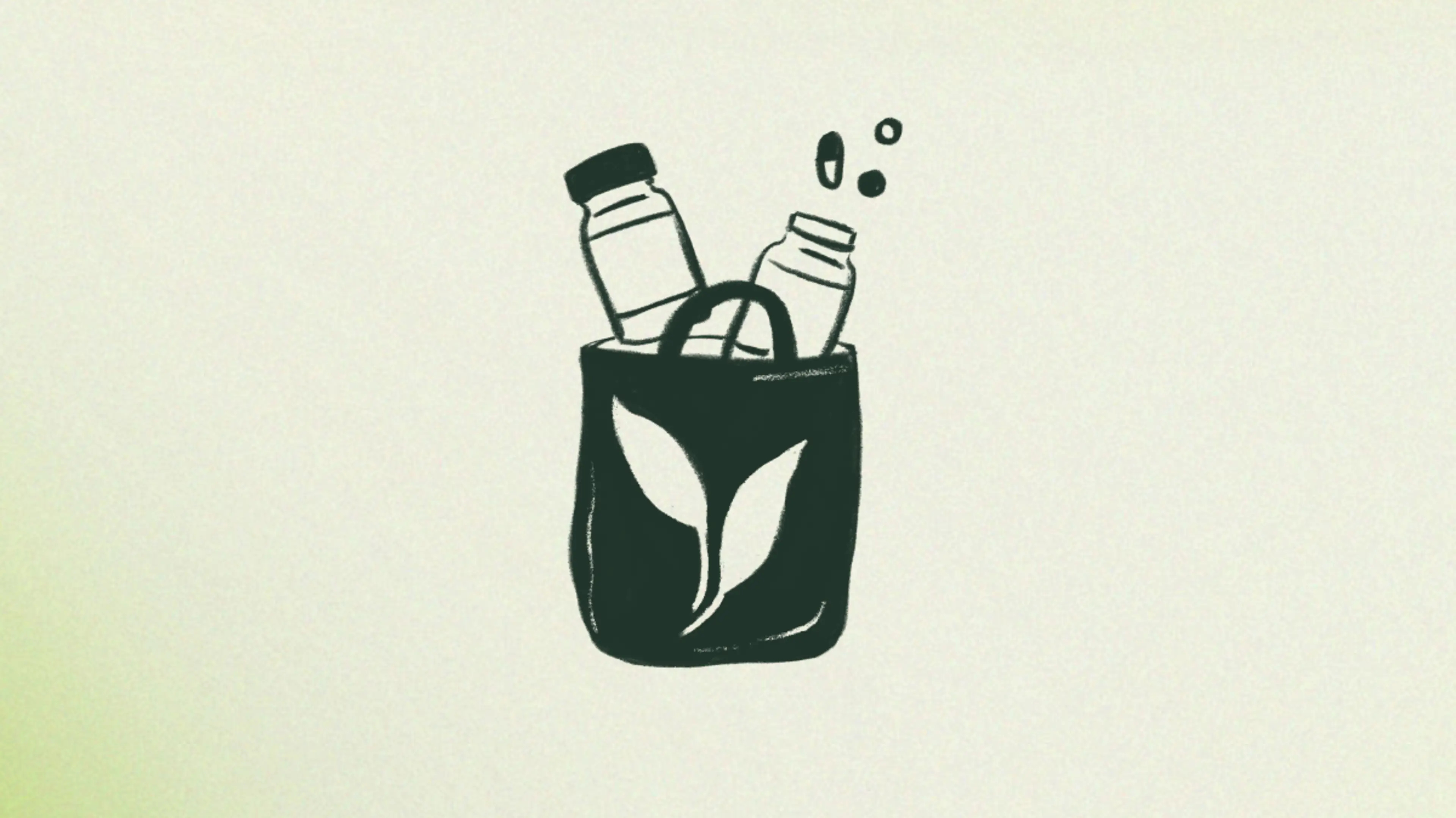“I had a cold throughout my entire pregnancy with my second child,” Natalia, a mother of two in Portland, OR, says. “I’m sure it was because my older child was in daycare. I was sick more in that six-month period than I had been in the previous six years. Whenever we had a week straight of not getting sick, we’d celebrate.”
While Natalia’s situation was largely caused by the return to school after Covid isolation (when kids who had not been exposed to viruses while remote were suddenly hit with them all at once), there are actual immune changes that happen during pregnancy.
Sometimes it works out in your favor. I was one of the lucky ones who was not sick at all during my pregnancy (though I’m making up for it now that I have a baby in daycare), and even my seasonal allergies disappeared. Sometimes, like in Natalia’s case, it does not.
So what gives? It turns out the link between pregnancy and the immune system is pretty complicated—and cool. With the cold and flu season officially here, we’re getting into the nitty-gritty of what you can expect from your immune system if and when you become pregnant.
Back to Basics: an Immune System Refresher
First things first, it’s important to understand how this system works. The immune system is basically the bodyguard of the body. Its job is to stop outside invaders, like bacteria, viruses, and toxins, from getting inside where they can cause illness. That is the most basic explanation that nearly everyone knows. But if you dig a little deeper, it gets more complicated.
The immune system is made up of two parts. Everyone is born with the first: an innate immune system, which is made up of the physical things that protect you against germs—think mucus, fluids like sweat and tears, and even your skin, which provides a closed surface that keeps vulnerable organs safely tucked away. While we all have these things, your genes determine how well yours function. “Your DNA makeup may cause your body to develop thinner or less efficient mucus production in the respiratory tract, making it easier for viruses to invade,” Dr. Munira Dudhbhai, ob-gyn, says.
The second part is the adaptive (also called the acquired) immune system, which teams up with the innate immune system to produce antibodies. Antibodies are the stage-five clingers you didn’t know you needed. They bind to foreign substances, like toxins or viruses, to prevent the invaders from doing whatever nefarious thing they have set out to do.
When you’re exposed to something like a virus, your acquired immune system creates a blueprint for how to fight it the next time it rolls in trying to start stuff. Our adaptive immune systems are all unique because we are all exposed to different things throughout our daily lives. This principle explains why it seems like kids are always sick—because they’re newer to the planet, they’re exposed to more things that they don’t yet have a blueprint for.
So, How Does Your Immune System React to Pregnancy?
The answer to this question is not as black and white as once thought, especially as newer research1 shows that the relationship between pregnancy and the immune system changes throughout the 40 weeks. “We used to think of the growing fetus as similar to an organ transplant, where the body’s immunity must be suppressed in order to ‘accept’ the fetus/new organ,” Dr. Megan Pallister, ob-gyn, says.
But our understanding of this relationship is changing. We now know that the relationship between mother, baby, and immune system is more nuanced and delicate than just one side shutting down in order to prevent an attack on the other.
In the first trimester, get ready to stock up on tissues
For starters, we have learned that the mother’s body actually recognizes the semi-related foreign body (the baby) and grows to tolerate it. But it doesn’t happen right away. There is an “initial dip in immune activity seen in expectant mothers, making them more susceptible to colds or mild infections,” Dr. Dudhbhai says. Basically, your adaptive immune system initially needs to chill out a bit, or else it will view your baby as a foreign invader. This is a good thing for your baby, but it also means you will be more prone to sickness during the early days of pregnancy.
The way your immune system functions in pregnancy is also closely linked to inflammation. Inflammation is kind of a buzzy word: it’s the reason your back hurts or your mom has arthritis. But inflammation, at its root, is an immune response. Something happens to your body—a cut, a virus, you go a little too big at the company holiday party—and the immune system reacts with redness, swelling, heat (aka fevers), or pain. This is annoying, but it’s your body’s way of fighting back and protecting itself.
While inflammation gets a bad rap, it’s essential for successful implantation. (Some studies even suggest2 that IVF patients who have had previous endometrial biopsies have a higher success rate because of the uterine inflammation caused by the procedures). Some of the fetal cells enter the womb’s lining, causing inflammation, which helps the fetus to stick.
So inflammation can be good for your brand new little one, but here’s where your immune system comes in. The first trimester is a pro-inflammatory state. This is important to the health of the fetus, but it makes your body vulnerable to other sicknesses. This is happening at the same time that your adaptive immune system is also more suppressed.
If your early first trimester falls in winter illness season, the effect of these changes may be that you feel like you’re sick all the time (not a fun experience when paired with nausea and fatigue). You may also find yourself sick in the summer months if they coincide with your first trimester, which can be confusing (hello, weird cold at the beach).
The second trimester is your time to thrive
While everyone’s pregnancy immunity pattern is unique, typically the body is in a pro-inflammatory state3 for the first 12-15 weeks of pregnancy. Then in the second trimester, which is categorized by a ton of growth as the baby goes from the size of a lime to a cauliflower, your body shifts into an anti-inflammatory environment. That’s good news for you.
It’s in the second trimester that the fetus, placenta, and mother generally all decide they are on the same team. “In the second trimester, the innate immune system kicks in to help the mom protect herself from infection and help maintain a balanced immune response to protect both the mother and her developing baby,” says Denise Noyer-Erez, CEO and clinical director at AIM Women’s Wellness Center (she’s also known as The Fertility Godmother).
Pregnancy also can have perks for people who are immunocompromised. “For women with autoimmune diseases, the time of pregnancy can act like a temporary truce,” Dr. Dudhbhai says. Some women see their symptoms lessen or go into remission entirely during pregnancy, which can be a huge relief. So, for most pregnant people, a strengthened immune system can be added to the list of reasons why the second-trimester rules.
In the third trimester, things get a little more complicated
Once the baby is fully cooked (all its organs are developed), it’s time for the final immunological change of pregnancy, which coincides with the second half of the third trimester.
A pro-inflammatory state is needed for contractions and giving birth. (New research 4 suggests that shifting into a pro-inflammatory state too early in pregnancy could be a factor in pre-term birth.) In the third trimester, you may feel like you have a cold even when you don’t. This is for two reasons: First, inflammation of the mucus membranes, known as pregnancy rhinitis, can make your snot thick, so you’re congested a lot. Secondly, there’s also a ton more blood in your body, some of which is flowing to the nasal passages, which can cause congestion.
This final act of pregnancy when you might start to feel like your indestructible immune system is slipping away is also preparing you for what will happen after you give birth. Whether you are immunocompromised and enjoying relief from your symptoms thanks to pregnancy or you just happen to find yourself immune from all seasonal colds and allergies like I did, the good times unfortunately won’t last. The immune system typically returns to its pre-pregnancy baseline within three to four months postpartum.
How to Care for Your Pregnant Immune System
If you’re newly pregnant and dealing with a cold or flu this winter, check out this guide to dealing with a cold and the flu during pregnancy. While the contents of your medicine cabinet may need a refresh to make sure what you’re taking is safe for pregnancy, there are things you can do to boost immunity, and most of it is stuff you’d probably be doing during cold season anyway.
“The number one thing is wash, wash, wash your hands,” Noyer-Erez says, adding that it’s helpful to take extra vitamins like vitamin D-3, a probiotic, vitamin C, and zinc. “Prioritize getting enough rest so your body has time to repair and stay strong,” she says. It can also be helpful to consume ginger, lemon, and herbs known to be helpful for immune support, such as echinacea.
“We recommend immunizations that are considered safe in pregnancy. These include (but are not limited to) influenza, T-dap, RSV, and Covid,” Dr. Pallister says. “If able, have your ob-gyn evaluate your antibodies to other infections like varicella and rubella prior to getting pregnant. This way, you can get a booster, if needed, to protect yourself. When pregnant, these boosters are not recommended because they are ‘live’ vaccines.”
What the emerging research is teaching us is that there’s still a lot to learn about the immune relationship between mother and baby. While each pregnant person’s experience will be different, the bottom line is that the strength of your immune system will most likely ebb and flow depending on where you are in your pregnancy and more specifically what’s going on with the inflammation in your body.
And if you’re lucky like me and manage not to get sick while pregnant, remember: daycare is coming.












